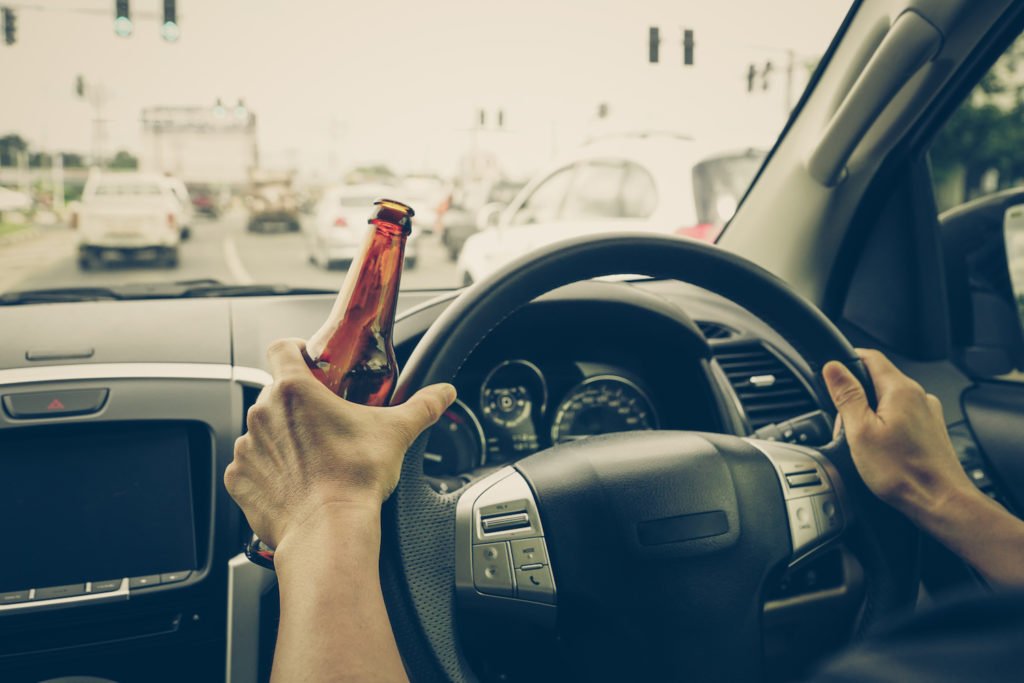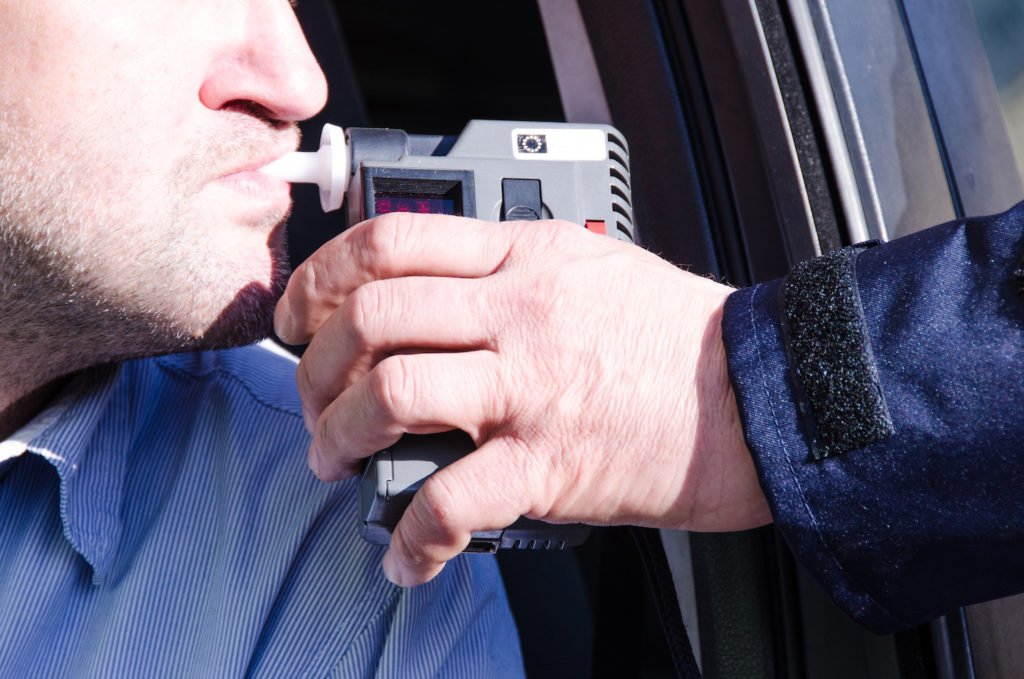Open container laws in most jurisdictions make it illegal for a person to have an open container of alcohol in the passenger compartment of a car. DUI laws, on the other hand, make it a crime for a person to either drive under the influence of alcohol or drive with a BAC of .08% or higher.
Most states say that a violation of an open container law is an infraction that is punished with a fine. DUI charges, though, are more severe. A first-time offense is typically charged as misdemeanor and it can be punished with jail time of up to six months.
Note that a person can challenge either charge with a legal defense. For example, an accused can say he/she is innocent because the police did not have probable cause to stop the car.
What is an open container offense?
Open containers of alcohol laws, in most U.S. states, make it illegal for people to:
- drive with an alcoholic beverage in the passenger area of a motor vehicle, and
- do so with the beverage opened – even if it is not being consumed.1
These laws typically say a beverage is “open” if:
- someone opened it (for example, took off a bottle top) for consumption,
- it has a broken seal, or
- the beverage was partially or entirely consumed.
The main purposes of these laws are to:
- reduce public intoxication, and
- discourage drinking alcohol while driving.2
Note that there are some states where open container laws do not apply. Some of these include:
- Alaska,
- Arkansas, and
- Connecticut 3
A conviction of an open container charge is typically an infraction.
Most open container violations are punished with a fine.

Driving with an open container of alcohol is illegal even if the driver is not impaired.
What is the offense of DUI?
Most jurisdictions make it a crime for a person to operate a motor vehicle while under the influence of alcohol.4
A motorist is considered “under the influence of alcohol” when his/her physical or mental abilities are impaired to the extent that he/she can no longer drive as safely as a cautious sober person.5
A first offense of driving under the influence is typically charged as a misdemeanor. While states impose different penalties for the crime, most say that the offense is punishable by:
- custody in jail,
- a driver’s license suspension or revocation,
- vehicle impoundment and/or vehicle confiscation,
- a mandatory installation of an ignition interlock device (IID) in the accused’s vehicle,
- alcohol and/or substance abuse evaluations,
- alcohol abuse treatment programs,
- DUI school, and/or
- monitored sobriety.6
What is the law on driving with a BAC of .08% or higher?
Laws in 49 states say that it is illegal for a motorist to drive a motor vehicle with a BAC of .08% or more.7
Utah law says that a person is guilty of DUI if he/she operates a vehicle with a BAC of .05% or higher.8
Most first-time drunk driving convictions under these laws are misdemeanor offenses. The penalties are like those listed above for driving under the influence.
Note that states often impose harsher penalties when drivers have significantly a high BAC (for example, .20% or higher).
Can a person fight either of these charges?
DUI attorneys advise clients that they can challenge violations of these laws with an effective open container or DUI defense. For example, an accused can challenge a violation of either set of laws by saying that he/she was stopped without probable cause.
As to violations of open container laws, a defendant can also use the defenses that:
- an open container was not in the passenger area of the vehicle, and
- police only found the container because of an illegal search and seizure.
As to DUI cases, a DWI attorney can challenge drunk driving violations by asserting that:
- the defendant’s driving was not affected by alcohol,
- the police failed to follow proper procedures, and
- field sobriety tests did not suggest intoxication.
Any person charged with an open container or DUI offense should contact an experienced criminal defense attorney for help. A defense lawyer will provide sound legal advice as to which defense an accused should raise.

Driving with a BAC of 0.08% or higher is DUI even if the driver is not impaired.
What are the laws in California?
California’s criminal laws on open container violations and drunk driving charges are like those set forth above.
The state’s open container laws are set forth in Vehicle Code Sections 23221 – 23229 VC. The offense is typically an infraction, punishable by a maximum $250 fine.9
Vehicle Code 23152(a) VC is the California statute that makes it unlawful for a person who is under the influence of any alcoholic beverage to drive a vehicle. A first, second, and third conviction of violating VC 23152(a) are usually misdemeanors.
Vehicle Code 23152(b) VC is the California statute that makes it “unlawful for a person who has 0.08 percent or more, by weight, of alcohol in his or her blood to drive a vehicle.” This offense is a misdemeanor.
The penalties for drunk driving in California represent those hardships discussed above.
If a person is guilty of driving while intoxicated and causes injury to someone, then the crime becomes a wobbler offense, per Vehicle Code 23153 VC. A prosecutor can charge a wobbler as either a misdemeanor or felony, depending on:
- the facts of the case, and
- the criminal history of the accused.
For additional discussion, please also see our article on DUI vs DWI – Is there a difference?
Legal References:
- See American Addiction Centers website, “Open Container Laws Within the United States.”
- See same.
- See same.
- See National Conference of State Legislatures website, “Drunken/Impaired Driving.”
- See, for example, California Jury Instructions No. 2110.
- See same.
- See Governors Highway Safety Association’s website, “Alcohol Impaired Driving.”
- See same.
- California Vehicle Code 23221 VC. See also People v. Oppenheimer (1974) 42 Cal.App.3d Supp.

